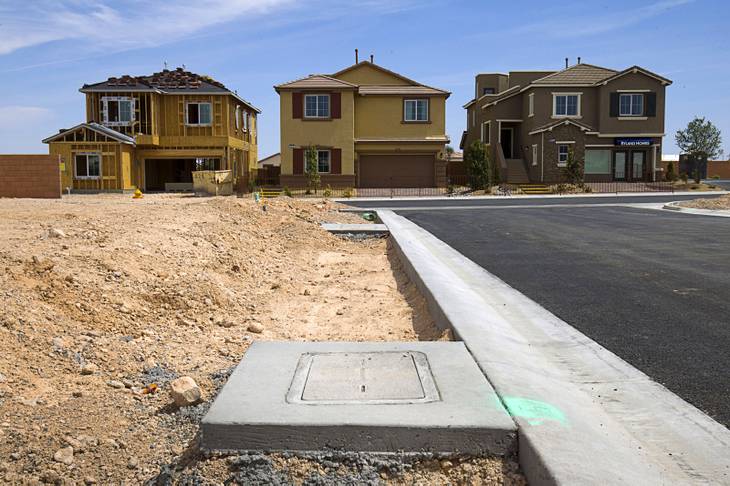Las Vegas homebuyers are making smaller down payments for new purchases, says a new report, a possible sign of easier mortgage lending in what had been ground zero for America’s real estate bust.
Southern Nevadans made an average down payment of 13.3 percent of the home’s purchase price in the first quarter this year. That’s down from 14.9 percent a year earlier, according to RealtyTrac.
In dollars, the average down payment last quarter was $36,326, down from $43,712.
Nationally, homebuyers made an average down payment of 14.8 percent in the three months ended March 31, down from 15.5 percent a year earlier, RealtyTrac reported.
That amounted to $57,710 last quarter, down slightly from $57,992 year-over-year, RealtyTrac reported.
Government-controlled mortgage-finance giants Fannie Mae and Freddie Mac recently introduced low down payment programs, and lower insurance premiums for government-insured Federal Housing Administration loans took effect at the end of January, according to RealtyTrac vice president Daren Blomquist.
All that helps first-time buyers, who “typically aren’t able to pony up large down payments” and “are finally starting to come out of the woodwork,” albeit gradually, Blomquist said in the report.
In theory, stronger credit scores could also result in smaller down payments. But that seems unlikely in Southern Nevada, as the state’s residents have some of the worst personal finances in the country.
Nevada, with the bulk of its population in Clark County, is racked by some of the highest rates of lousy consumer credit, bankruptcies, foreclosures, underemployment, mortgage delinquencies and uninsured residents, according to a January report by the nonprofit Corporation for Enterprise Development, a Washington, D.C., advocacy group for lower-income Americans.
The group ranked Nevada’s overall economic health 48th among the states and the District of Columbia, saying many residents here “lack the most basic tools to save and build a secure economic future.”
Moreover, Nevada is second from the bottom among the states and D.C. for its percentage of residents who spend more money than they make; third from the bottom for the share of residents who borrow from non-bank lenders; and fourth from the bottom for people who pay only the minimum balance on their credit-card bills, according to a March report from personal-finance website WalletHub.
The site ranked Nevada second-worst in the country for financial literacy, behind Mississippi.
